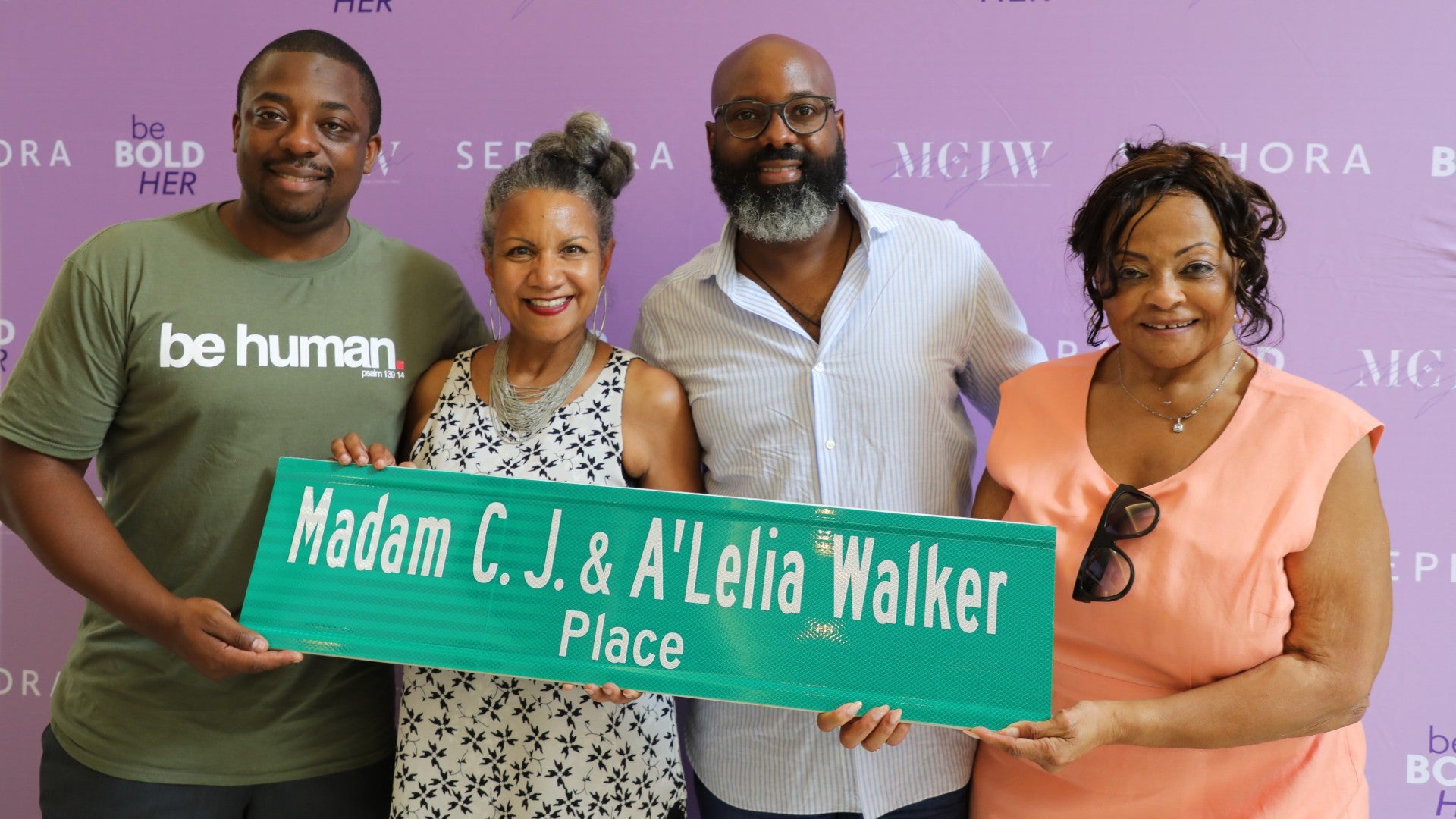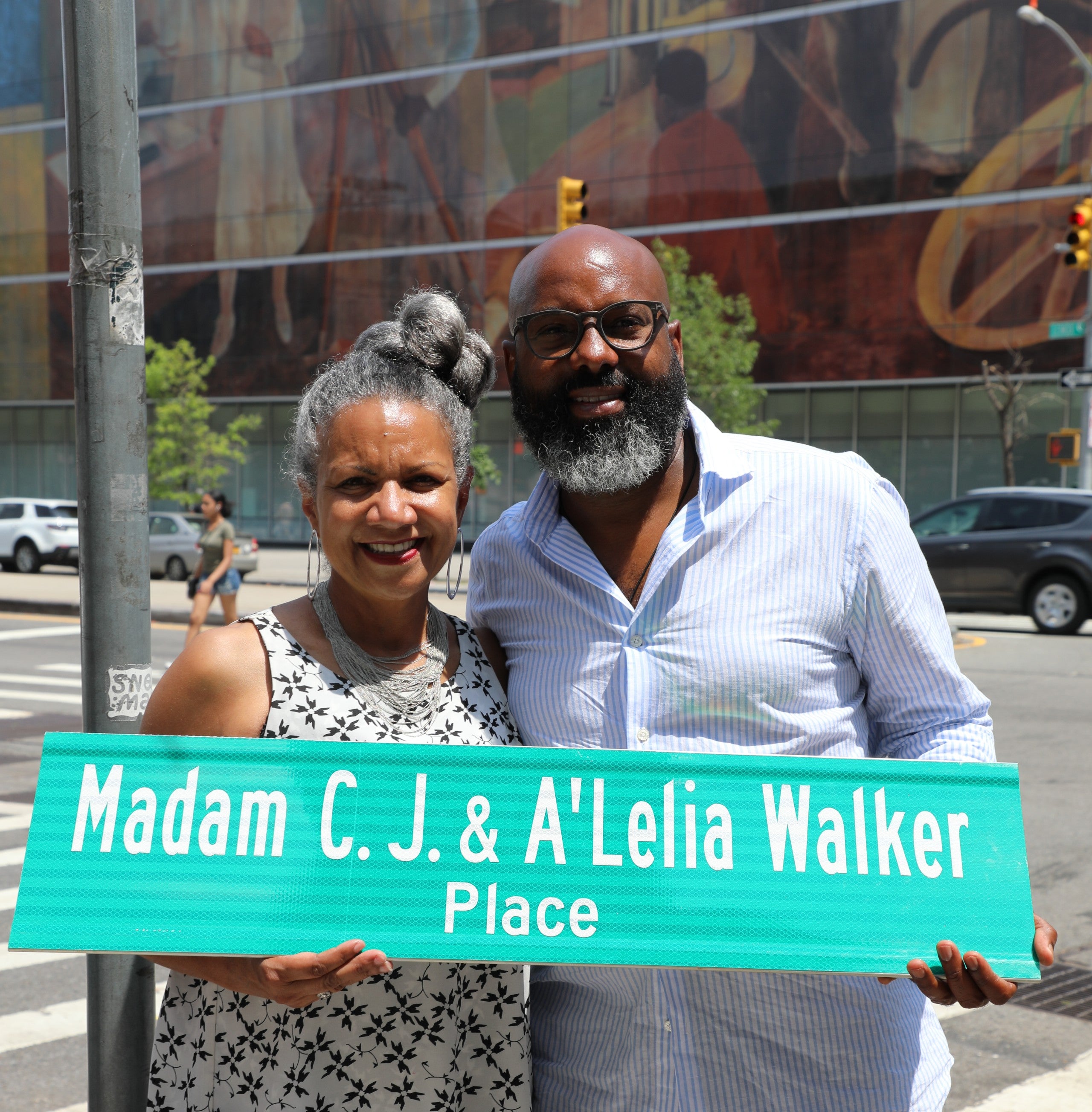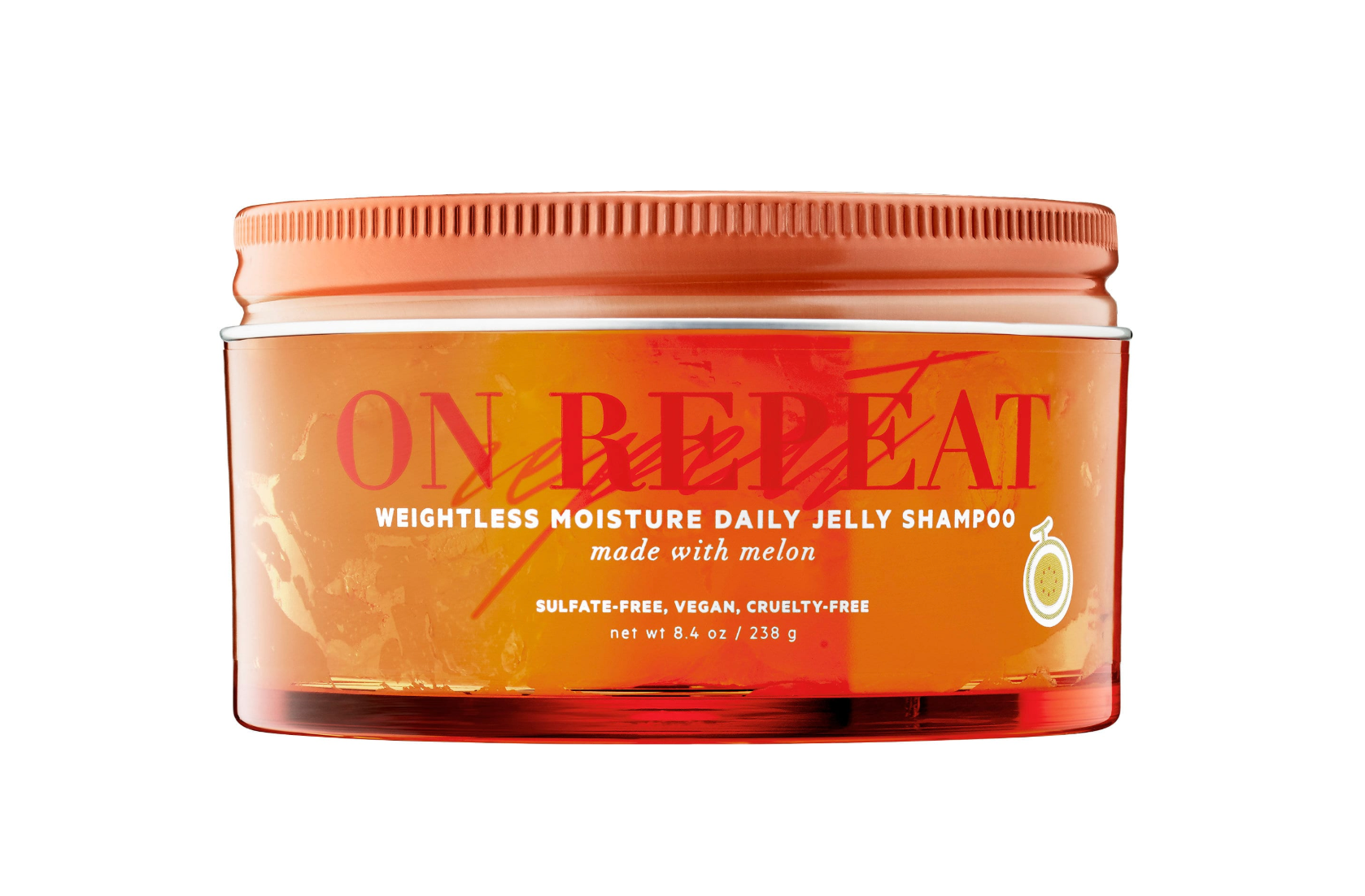
Over this past weekend, 136th Street in Harlem, New York (between Lenox Avenue & Malcolm X Blvd) was finally unveiled as Madam C.J. and A’Lelia Walker Way.
The historical event was celebrated with a street naming ceremony at the site, and a reception at the famous Schomburg Center for Research in Black Culture, hosted by MCJW Beauty Culture, with notable guests such as Ebone Carrington, Harlem Hospital CEO, Manhattan Borough President Gale Brewer, and Richelieu Dennis, Founder, and CEO of Sundial Brands, manufacturer of MCJW, and Founder and Chairman of Essence Ventures.
Madam C.J. Walker has long been celebrated as one of the first Black self-made millionaires by developing hair care products in the early 1900s, specifically geared towards treating Black hair. Walker’s great-great-granddaughter and biographer A’Lelia Bundles has worked to ensure that Madam Walker, along with her daughter A’Lelia Walker, are also celebrated as pioneers in philanthropy and activism.

We caught up with Bundles following the celebration to discuss the Walker legacy of sisterhood and philanthropy, and its current impact on the natural hair movement taking place today.
ESSENCE: How do you see Madam Walker’s influence today in the celebration of Black women?
A’Lelia Bundles: Madam Walker [was] a poor washerwoman who was helped by other women in her AME church in St. Louis who gave her a vision of herself as something other than an illiterate washerwoman. As she became successful, she turned around and helped empower other women to become economically independent, but also impressed upon them that their first duty was to humanity. That then turned into women who were empowered to be a part of the civil rights movement. That sense of needing to do something for your community is part of the seed that I think continues to be planted.
ESSENCE: With regard to the aesthetic and innovation of Black beauty, how do you feel Madam Walker impacts today?
Bundles: Many of the same issues women were having back then are the same issues women are having now. Part of it back then was hygiene and not having indoor plumbing to wash your hair. So in the beginning, she was working more on the health of the hair. And that’s what our new MCJW line really focuses on. Today, people are still covering their hair, not washing their hair enough, braiding too tightly, wearing wigs and hairpieces and weaves too long so the hair is still damaged at the scalp. So it’s still trying to find ways to have healthy hair.
But also for a black woman back then to put her own image on her products, she was making a statement about who we are and how we can find ways to take care of ourselves.

ESSENCE: Do you think she knew the magnitude of what she was doing back then?
Bundles: I think instinctively she knew that’s what other women needed to hear because she knew how much she was not appreciated, yet held up to a standard she couldn’t attain. Somehow she had the intuitive sense that other Black women needed to hear the message she was giving.
ESSENCE: The products are now available at Sephora as Madam C.J. Walker Beauty Culture.
Bundles: I’m so grateful that the products still exist and that Sundial put so much attention and care into reformulating them so that they’re something a 21st century woman would be interested in, and that they’ve stayed with the core values of healthy hair. I couldn’t be happier that a new generation of women will get to experience something that has Madam C.J. Walker’s name on it.